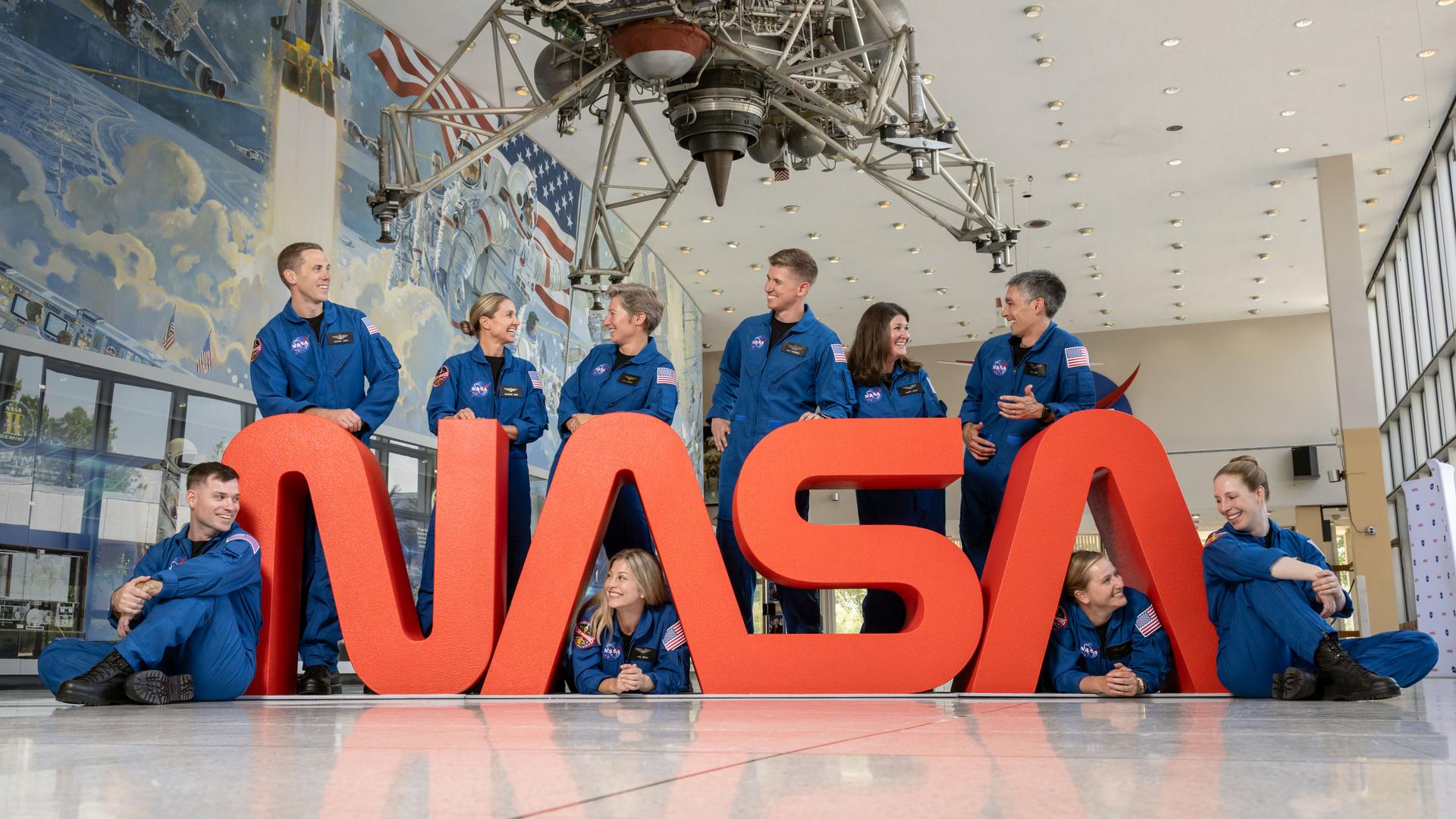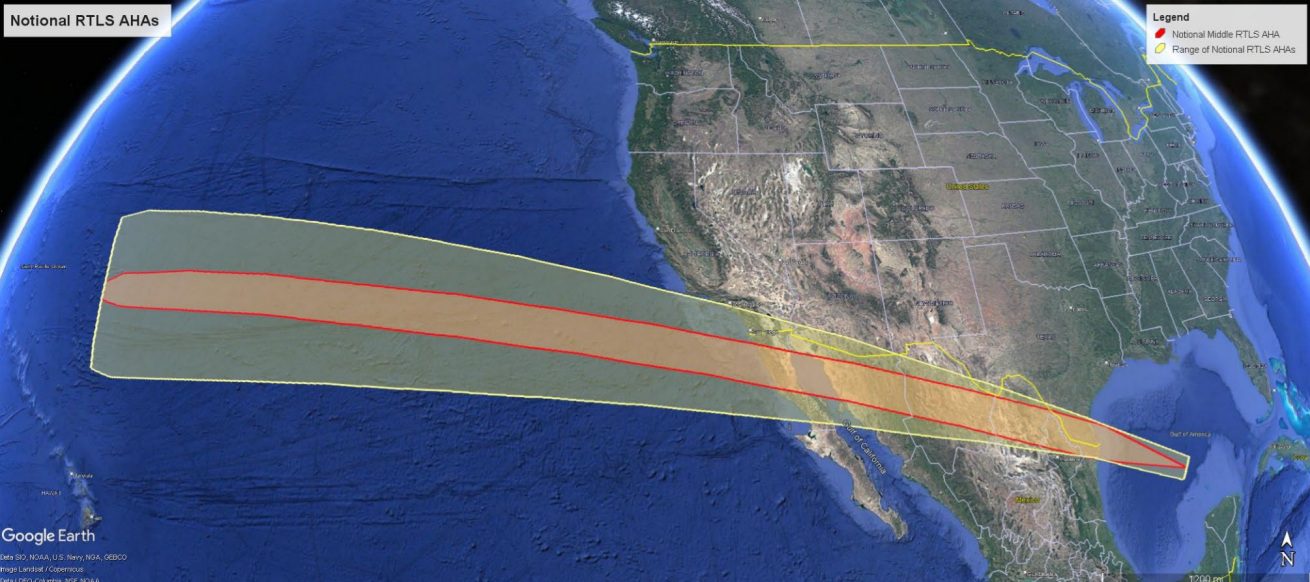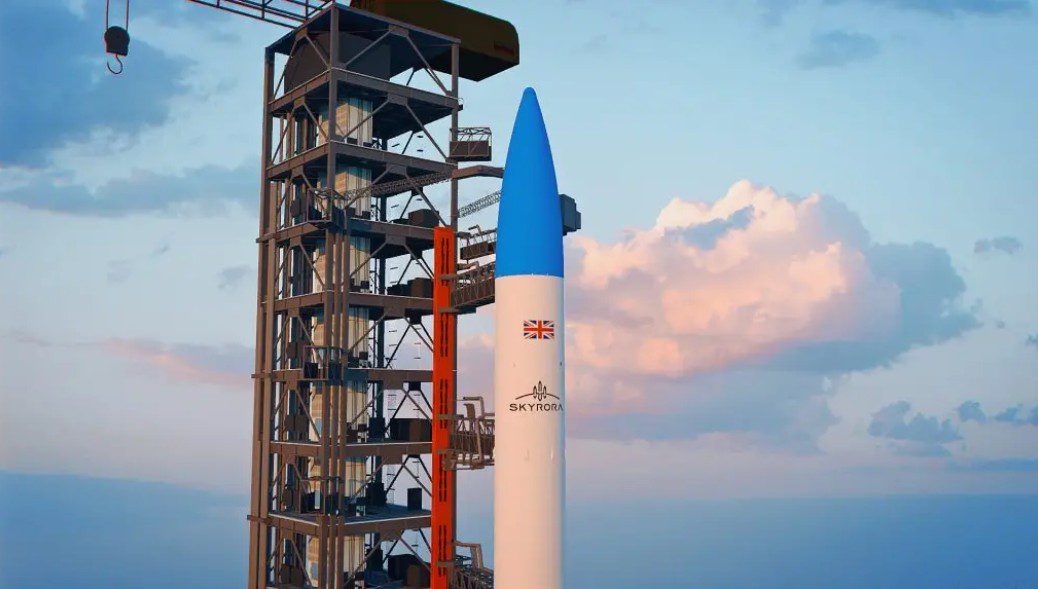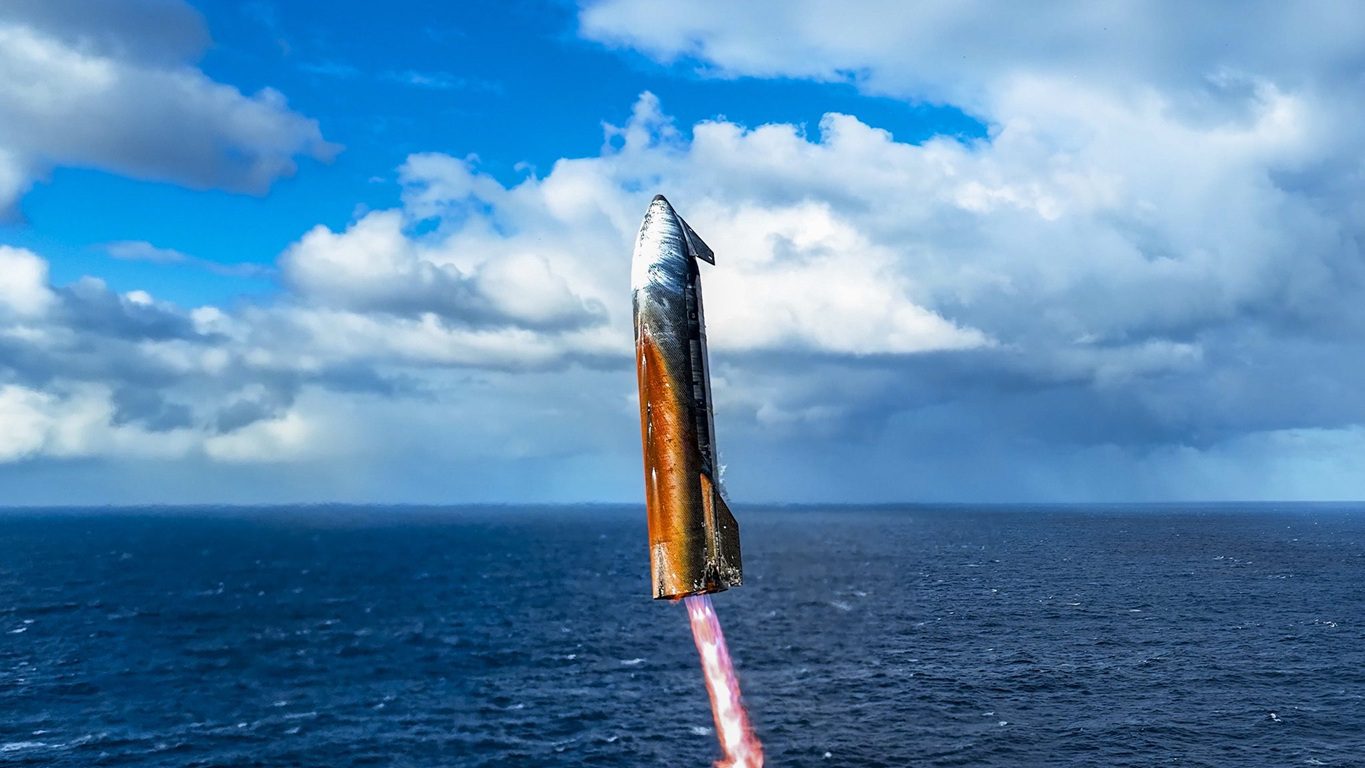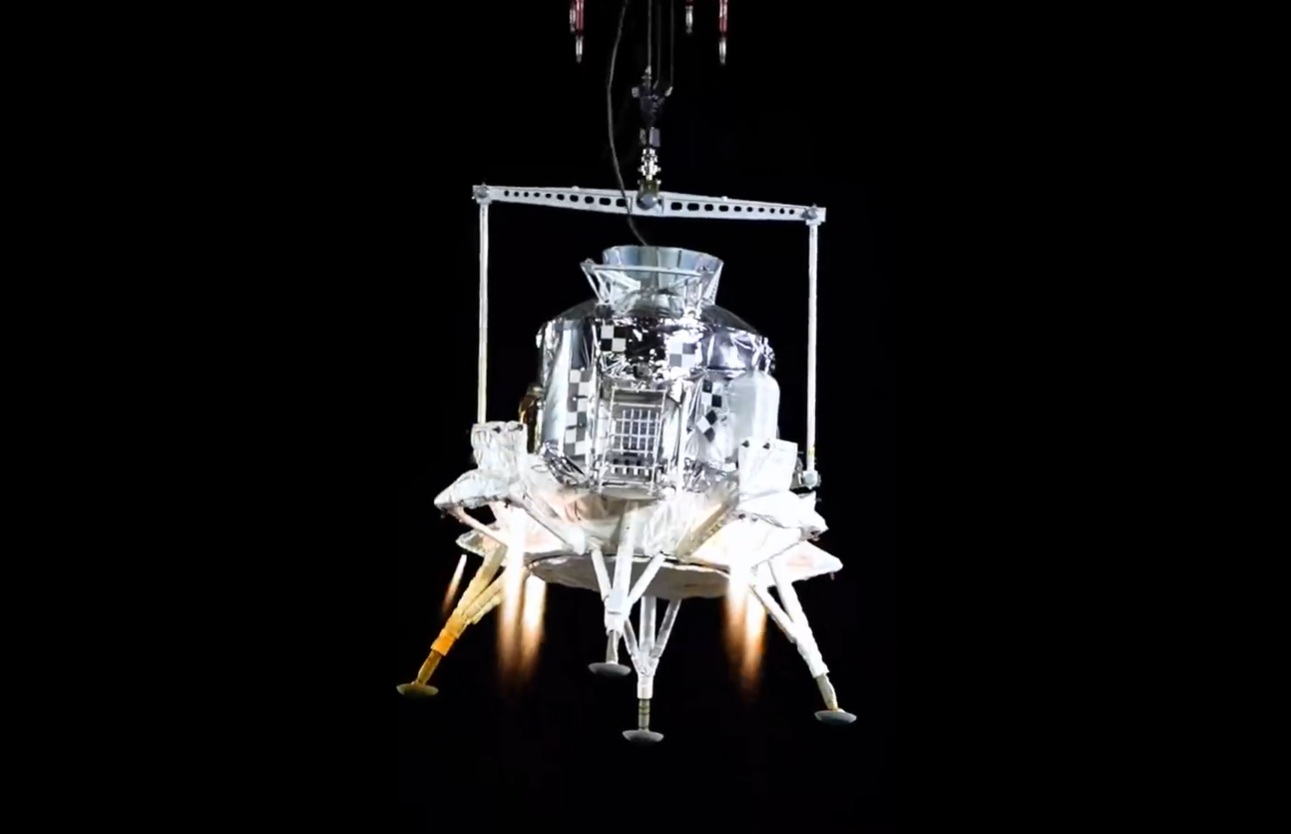The first Plenary Session of the second day here at the IAC 2023, Baku, Azerbaijan, saw a discussion between three companies which are planning commercial space stations or transportation activities in low Earth orbit (LEO). Involved in this session was Axiom Space an American company looking to fill the shoes (Matt Wilson comment: Or should that be orbit?) of the International Space Station (ISS) after its retirement.
Christian Maender, Executive Vice President of In-Space Solutions, kicked off the talk for Axiom. He outlined his company’s methodology for the construction of its space station and its positioning as a direct successor to the ISS. The modules for its new station are being built by European aerospace manufacturer Thales Alenia Space (TAS) who are surprisingly popular; TAS also works with Northrop Grumman on the Cygnus freighter. Axiom is anticipating the first building block module, called Hab 1, to be launched in 2026.
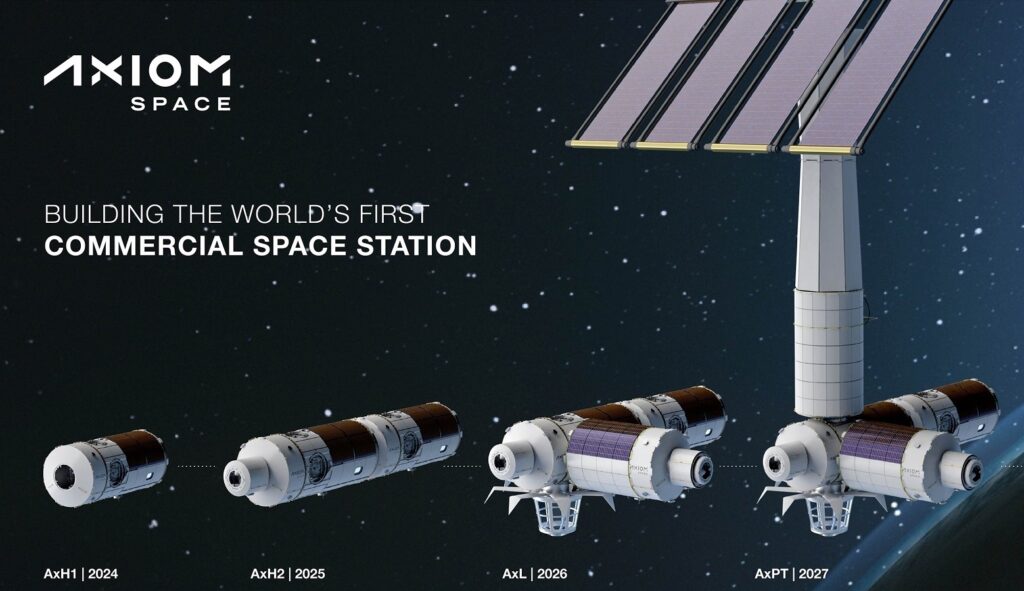
Axioms plan for contracting its station in orbit, with its original timeframe. The start date for Hab 1 has been delayed by two years. Courtesy: Axiom Space
Axiom’s plan is for its new station to be built up while connected to the ISS with Hab 1 acting as the gateway between the two. Each of the Axiom Hab modules will be able to support four astronauts, ensuring no loss of capacity compared to the ISS. Eventually, the other components of Axiom’s station (Hab 2, Research and Manufacturing module, and the Power Thermal module) will be launched and joined to Hab 1 before the newly completed station detaches from the ISS. As such, the new Axiom Station’s orbit will initially be very similar the of ISS. However, the new space station will be quite capable of moving itself and Axiom intends to look into shifting its station’s orbit and inclination in the future.
Maender explained that the benefits of this plan included: shared power with the ISS during construction; partial shielding from the LEO environment by the ISS; and potentially an attractive and easy transition for ISS users to become Axiom customers. They could also have their continuing experiments on the ISS transferred into the new station to thus survive the demise of the ISS.
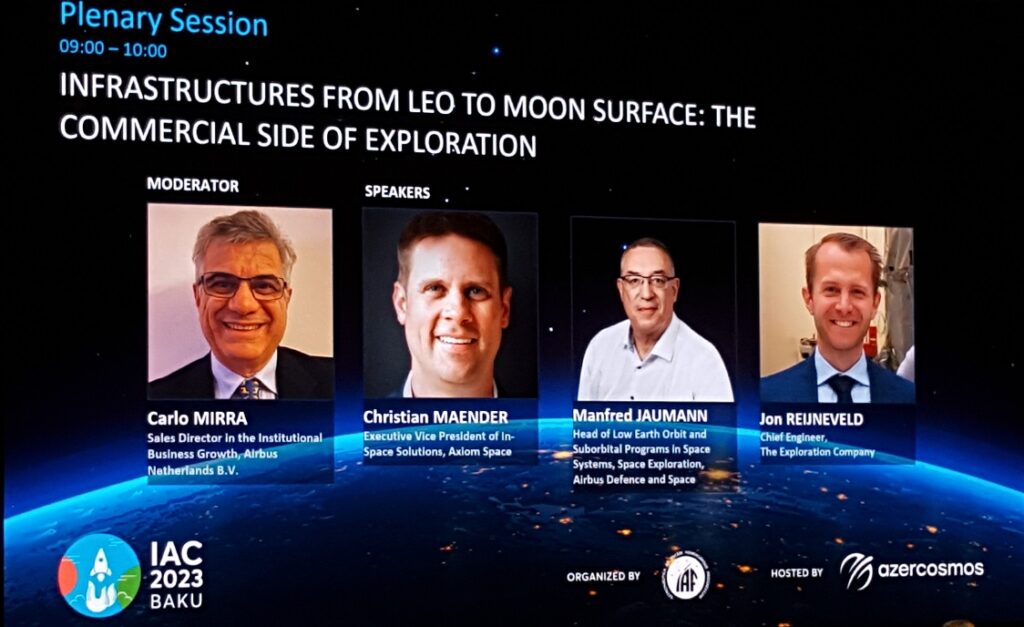
The speakers of Plenary 3 at the IAC 2023 Baku. Courtesy: Matthew Wilson
Fielding questions from the audience concerning market readiness and desire for his station and others like it, Christian Maender stated “The market is ready because we’re here talking about it”. When questioned about the potential profitability of his station he explained that “Governments don’t want to fund LEO stations anymore as they are looking to shift their budgets towards getting to the Moon and Mars.” He added that governments and space agencies were happy – and confident in – leaving the LEO stations activity for commercial industry to take over.
He also referenced another Axiom business line, space tourism, and said that its next mission to the ISS, Axiom 3, is now targeted for January next year.

